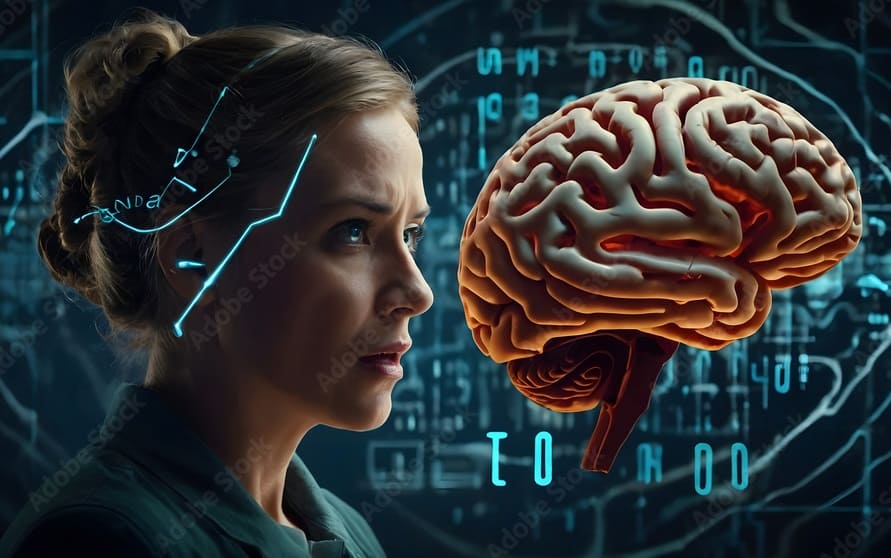Have you ever walked into a new place and felt an eerie sense of familiarity, like you’ve been there before? Or maybe during a conversation, a sentence or phrase strikes you as oddly familiar even though you’re certain you’ve never heard it before. That strange feeling is what we call déjà vu, a French term meaning “already seen.”
But what is déjà vu, really? Is it a glitch in your brain, a peek into a past life, or just an odd coincidence? Let’s dive into this mysterious phenomenon and explore expert insights on why it happens.
What is Déjà Vu?
Déjà vu is a fleeting, intense feeling that you’ve experienced something before when, in reality, you haven’t. It’s like a memory that feels incredibly vivid but doesn’t belong in your actual life timeline. For most people, déjà vu is quick, often lasting only a few seconds, leaving behind a puzzling sense of wonder.
This sensation is surprisingly common—research suggests that 50-70% of people experience déjà vu at least once in their lives. It’s most often reported by teenagers and young adults, though it can happen to anyone at any age.
The Science Behind Déjà Vu: Expert Insights
Scientists have been trying to unravel the mystery of déjà vu for decades. While there’s no definitive explanation, experts have proposed several fascinating theories:
1. Memory Mismatch Theory
Experts believe déjà vu might occur due to a mismatch in your brain’s memory systems. When your brain processes new information, it sometimes stores it incorrectly, leading you to believe you’re recalling a past memory. Essentially, your brain tricks you into thinking, “I’ve been here before.”
2. Split-Second Lag
According to some neurologists, déjà vu happens when your brain processes the same information twice but with a tiny delay. The first impression is so brief that it doesn’t register as a conscious memory, but when the delayed perception kicks in, your brain misinterprets it as a prior experience.
3. Hippocampus Activity
The hippocampus, the part of your brain responsible for memory and learning, might play a key role. If the hippocampus fires signals at the wrong time—like recognizing a current situation as familiar even when it’s not—you get that déjà vu feeling.
4. Neurological ‘Glitch’
Déjà vu is sometimes linked to neurological conditions, particularly temporal lobe epilepsy. In people with epilepsy, déjà vu can occur as part of an aura before a seizure. However, for most people without such conditions, it’s just a harmless brain quirk.
Why Does Déjà Vu Feel So Real?
The vividness of déjà vu might be linked to how your brain processes familiarity. When you encounter something that feels familiar, your brain accesses memories to make sense of it. During déjà vu, your brain misfires and gives you a false sense of certainty, making the moment feel incredibly real—even though it’s not.
Can Déjà Vu Be a Sign of Something Bigger?
For the majority of people, déjà vu is completely normal and doesn’t indicate any underlying health issues. However, if you experience déjà vu frequently, especially alongside symptoms like confusion, loss of awareness, or physical sensations (like tingling), it’s worth consulting a neurologist. These could be signs of an underlying condition like epilepsy or migraines.
The Psychological Perspective
Some psychologists view déjà vu as a psychological phenomenon tied to stress, fatigue, or even subconscious memories. For instance, if you’ve seen a similar scene in a movie or read about it in a book, your brain might subconsciously draw parallels, creating a sense of familiarity.
Is Déjà Vu Connected to the Paranormal?
For centuries, déjà vu has been a topic of fascination in spiritual and paranormal circles. Some people interpret it as evidence of reincarnation or memories from past lives. While there’s no scientific backing for such claims, the mysterious nature of déjà vu allows room for personal interpretations.
Final Thoughts: A Fascinating Brain Phenomenon
Déjà vu might feel strange or even unsettling, but it’s a natural part of how our complex brains process information. While science hasn’t cracked all its secrets, one thing is clear: it reminds us of how intricate and fascinating our minds truly are.
Also Read:
